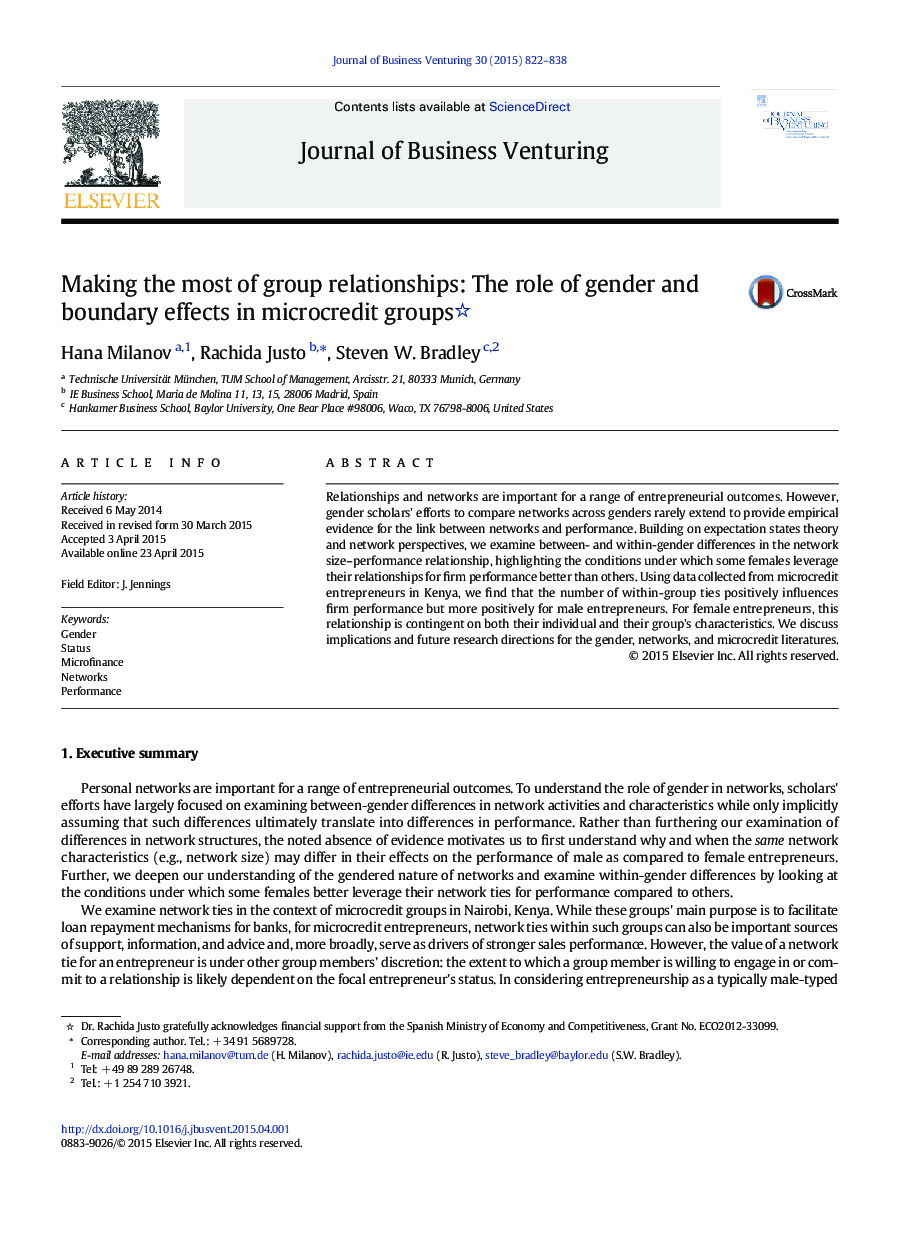| کد مقاله | کد نشریه | سال انتشار | مقاله انگلیسی | نسخه تمام متن |
|---|---|---|---|---|
| 1019297 | 1482862 | 2015 | 17 صفحه PDF | دانلود رایگان |
• We investigate gender differences in the impact of entrepreneurs’ group ties on firm performance.
• We use Expectation State Theory to investigation these differences.
• We observe these relationships among microcredit lending groups in Kenya.
• While both females and males benefit from within-group ties, males are able to extract more from their relationships.
• Females’ expertise and their loan officer’s gender enforce the positive relationship between group ties and performance.
Relationships and networks are important for a range of entrepreneurial outcomes. However, gender scholars' efforts to compare networks across genders rarely extend to provide empirical evidence for the link between networks and performance. Building on expectation states theory and network perspectives, we examine between- and within-gender differences in the network size–performance relationship, highlighting the conditions under which some females leverage their relationships for firm performance better than others. Using data collected from microcredit entrepreneurs in Kenya, we find that the number of within-group ties positively influences firm performance but more positively for male entrepreneurs. For female entrepreneurs, this relationship is contingent on both their individual and their group's characteristics. We discuss implications and future research directions for the gender, networks, and microcredit literatures.
Journal: Journal of Business Venturing - Volume 30, Issue 6, November 2015, Pages 822–838
